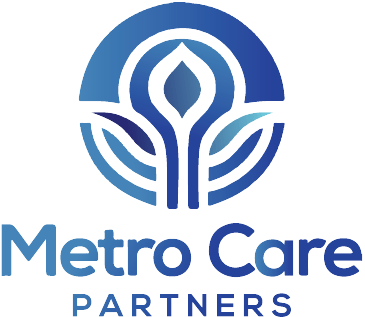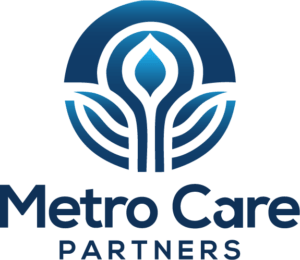Peer support is a powerful tool for mental health recovery. It connects people with shared experiences, offering emotional support, practical advice, and a sense of community that complements professional care. Here are the 5 key ways peer support makes a difference:
- Emotional Connection: Share openly with people who understand, reducing isolation and building confidence.
- Practical Tips: Learn real-life recovery strategies like managing medication, creating routines, and handling daily challenges.
- Inspiration: Gain motivation by seeing others succeed in their recovery journey.
- Community Building: Join local or virtual groups to feel connected and supported.
- Self-Advocacy: Develop skills to communicate your needs and take charge of your recovery.
Whether through free services like Minnesota Warmline or programs like Metro Care Partners, peer support helps individuals navigate challenges, regain independence, and find hope. For immediate help, contact the 988 Suicide and Crisis Lifeline or explore local peer support options.
Recovery Through Peer Support
1. Getting Support from People Who Understand
Dealing with mental health challenges can feel isolating, but connecting with someone who truly gets it can make a huge difference. At Metro Care Partners in Minnesota, Certified Peer Specialists provide a safe space where individuals can share openly without fear of judgment or stigma.
These peer connections offer validation through shared experiences. Unlike traditional clinical approaches, this type of support builds a foundation for noticeable progress in recovery.
Studies highlight that peer support can improve quality of life, boost participation in mental health services, and even reduce hospital readmissions and treatment costs. Group settings, in particular, amplify these benefits by fostering a sense of empowerment and connection through shared experiences.
"The peer group members feel judged by people who haven’t experienced psychosis. That’s why group discussions are always open and honest, people can contribute or listen. They share coping strategies with each other, but most of all it is the safety of being with your peers who understand their daily struggles." – Lee Hutton, Outreach Worker for Hearing Voices
These honest and open exchanges help break down feelings of isolation and build confidence. Emotional validation from peers who have faced similar struggles creates a sense of belonging and inspires continued healing.
In Minnesota programs, these peer connections are at the heart of lasting recovery. Heather Adamson, a Carer Support Worker, shares:
"Peer support happens naturally when you create a space where people feel valued and listened to… I feel lucky that I get to witness the smallest sparks of connection grow into meaningful, reciprocal support and friendship."
2. Learning Practical Recovery Tips
In addition to emotional support, peer groups provide hands-on recovery strategies that go beyond what traditional therapy often offers. At Metro Care Partners in Minnesota, these groups focus on sharing actionable advice that can make a real difference in daily life.
Peer support focuses on coping techniques that feel more relatable and effective than standard clinical recommendations. For example, a study conducted between December 2022 and February 2023 highlighted how distraction techniques helped participants handle daily stress and navigate overwhelming moments.
At Metro Care Partners, peer supporters offer guidance on practical issues like:
- Managing medication schedules effectively
- Setting up healthy sleep habits
- Finding affordable transportation options
- Using healthcare services with confidence
- Creating reliable self-care routines
Peers who’ve faced similar challenges – whether recovering from major medical procedures or navigating parenting – share relatable advice and personal experiences that go beyond textbook solutions.
These connections not only provide immediate, useful strategies but also help individuals build confidence and resilience. By combining emotional support with practical tools, peer support becomes a key part of the recovery process.
sbb-itb-986d218
3. Finding Motivation Through Others’ Success
Watching others overcome mental health challenges can spark hope and inspire recovery. Peer support groups often highlight recovery stories that show what’s possible. Research backs this up, showing that hearing about others’ successes can shift mindsets, helping people see a way to thrive instead of just getting by. The impact is real – studies confirm the positive effects.
For example, research shows that celebrating recovery milestones can lower the risk of relapse by 25%. These moments of recognition play a key role in maintaining long-term progress.
Take Felishia McPherson, a Licensed Professional Counselor and Certified Peer Support Specialist, as an example. She shares how peer support became a cornerstone of her recovery:
"Peer support has been the foundation of my success as a returning citizen, not just as a career, but as a means of communicating, connecting and empowering others. I truly believe peer support saved my life."
Peer support success can look different for everyone. It might mean:
- Achieving personal recovery goals
- Learning new ways to cope
- Strengthening relationships
- Taking on leadership roles
- Supporting others in their recovery
Local programs also offer structured environments where this kind of support thrives. Seeing others make progress creates a ripple effect, boosting confidence and encouraging people to share their own recovery experiences.
4. Making Connections in the Community
Building connections within the community plays a key role in supporting mental health recovery. Having a strong support network can help reduce symptoms and improve overall well-being.
Organizations like Mental Health Minnesota offer free and confidential peer support services, such as the Minnesota Warmline, to help combat isolation. Similarly, NAMI Minnesota provides specialized peer support groups tailored to various communities, including:
- Adults and young adults
- African-American groups
- GLBTQ communities
- BIPOC-focused sessions
These resources highlight the variety of local options available for connecting with others outside of traditional care settings.
Another initiative, the Virtual Peer Support Network (VPSN) by Wellness in the Woods, launched in 2020, uses Zoom to create structured opportunities for connection. Some of its offerings include:
- Paint-Along sessions
- Cultural wellbeing groups for Native American, Somali, and Togolese communities
- Chronic pain support groups
- LGBTQIA2S+ wellbeing meetings
Rob, a participant in VPSN’s "Friday Night Freedom" peer group, shares his perspective:
"Friday nights are hard. I want to get together with others, but all my friends go to the bars. I needed somewhere I could go that was free of all that."
Stephanie Gilbert, AMFT, program director and therapist at Mindfulpath, Inc., explains the importance of community:
"Community is not just an entity or a group of people, it’s a feeling. It’s feeling connected to others, feeling accepted for who you are and feeling supported. Having connection can help us feel wanted and loved."
The impact of peer support is backed by data:
- 85% of participants in peer support groups report improvement
- 78% of participants in educational workshops report improvement
- 82% of participants in action-based programs report improvement
Engaging with these programs means joining a network of people who understand and validate your experiences. These connections not only support recovery but also help individuals feel empowered to advocate for their own needs along the way.
5. Learning to Speak Up for Yourself
Speaking up is a powerful tool in mental health recovery, helping individuals take charge of their healing journey. Self-advocacy plays a key role in this process, allowing people to express their needs and make their voices heard. Peer support creates a safe environment where individuals can develop the confidence and skills to communicate effectively. At Metro Care Partners, certified peer specialists work closely with participants to practice expressing their thoughts and concerns.
Self-advocacy relies on a few core skills: self-awareness, assertiveness, setting boundaries, and problem-solving. Thriveworks describes it as “the practice of representing yourself and your interests, needs, and rights in various aspects of life, particularly in situations where your voice needs to be heard and acknowledged”. Peer support groups build on this idea by offering practical techniques to help individuals express themselves more effectively.
Some helpful strategies include drafting conversation scripts, practicing assertive communication, keeping track of your needs, and following through on plans. As Steve Colori explains, sharing personal experiences can help make difficult topics easier to discuss and encourage others to open up, highlighting the importance of self-expression.
Regularly reflecting on your progress, maintaining open communication with healthcare providers, and fine-tuning your assertiveness skills can strengthen your ability to advocate for yourself.
Conclusion
Peer support plays a crucial role in mental health recovery by offering both emotional encouragement and practical advice. Through shared experiences, individuals can connect, find hope, and learn strategies to navigate their recovery. As Change Mental Health explains, "Peer support complements professional care. It is not a replacement for therapy or medication but can be a helpful addition, offering emotional support and practical coping strategies from those who’ve been there".
The power of peer support is evident in stories like Emily R.’s experience with Metro Care Partners. She shares, "Metro Care Partners transformed my life. My ARMHS worker helped me build routines, regain confidence, and overcome challenges I never thought possible. Their genuine care and guidance gave me the tools to rebuild my life. I’m so grateful for their support!".
For Minnesota residents, there are several resources to explore for peer support:
- Mental Health Minnesota: Offers free, confidential peer support through the Minnesota Warmline, accessible via phone, text, or online chat.
- Metro Care Partners: Provides ARMHS services designed to help individuals regain independence and improve daily living skills.
- We Can RELATE: Focuses on online chat-based peer support tailored for teens and young adults.
These services provide practical ways to include peer support in your recovery process.
You don’t have to face recovery alone. As Mental Health America states, "Peer support empowers people to make the best decisions for them and to strive towards their goals in their communities. Peers are an essential component of recovery-focused systems and are key across settings and stages of recovery".
If you’re in need of immediate help, Minnesota’s mobile mental health crisis teams are available 24/7 in every county. You can also contact the 988 Suicide and Crisis Lifeline anytime for support and connections to local resources.

